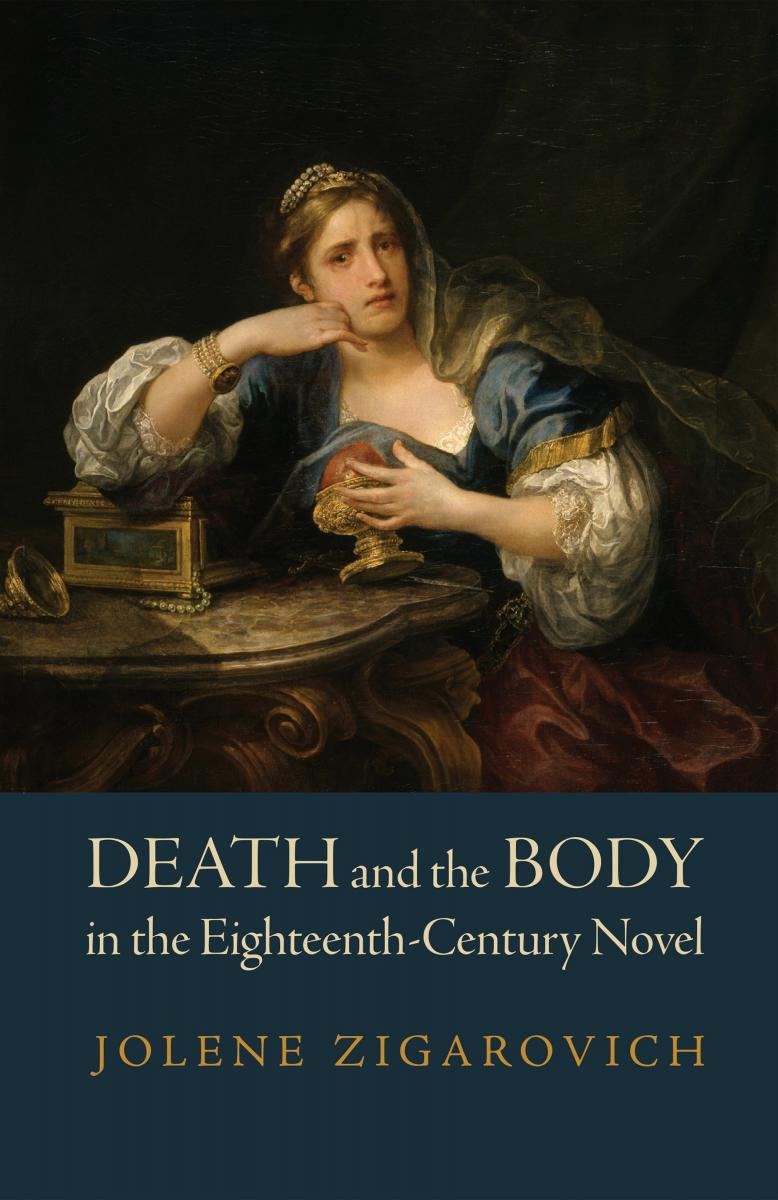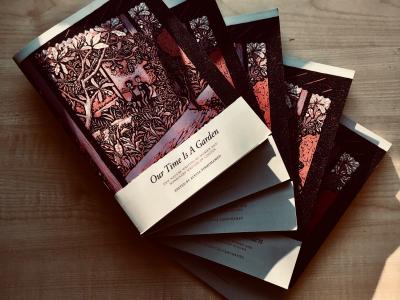
Spring 2023 is a busy time at IASH as we celebrate the work of former Fellows, with a range of new books launching at the Institute in the coming months.
Our Time Is A Garden: New Nature Writing by Women and Nonbinary Writers of Colour, edited by Dr Alycia Pirmohamed (IASH Occasional Papers, vol. 25)
Friday 3 February, 17:30–19:00 GMT at Summerhall: https://ourtimeisagarden.eventbrite.co.uk (currently sold out, but virtual tickets are available)
Our Time Is A Garden is a wonderful new collection of nature writing and landscape poetry from some of Scotland's most exciting poets. Edited by IASH's Junior Anniversary Fellow 2021-22 Dr Alycia Pirmohamed, the book seeks to decolonise the literary arts in Scotland, primarily by supporting the development of, and creating space for, new nature writing by women and nonbinary writers of colour. Poets include Anthony Ezekiel (Vahni) Capildeo, Tim Tim Cheng, Marjorie Lotfi, Nina Mingya Powles, Jeda Pearl and two winners of the 2022 Edwin Morgan Poetry Award, Titilayo Farukuoye and Roshni Gallagher.
Nature poetry is historically a male-dominated poetics, where women and nonbinary writers of colour have been doubly marginalised. All one need do is look at nature writing anthologies, awards, scholarship, and criticism to see that there is a noticeable gap of these perspectives in mainstream literary culture. In Western/European contexts, the dominance of white, male perspectives in nature writing is so pervasive that it is often a barrier for women and nonbinary writers of colour to even call themselves nature writers.
Five workshops were co-facilitated by artists and academics working in various areas of ecological writing during 2022. All the writers included in the collection attended this workshop series as either attendees or guest speakers. The programme was open to poets at all stages in their careers and from any educational background. It aimed to develop writing skills and promote knowledge exchange by sharing interdisciplinary art and research. The workshops emphasised interdisciplinary knowledge exchange between academics, researchers, and artists, alongside the development of new poetry, to contribute to the decolonisation of nature writing in the UK.
Our Time Is A Garden will be available completely free, both online and as a pamphlet published by the University of Edinburgh's Institute for Advanced Studies in the Humanities from Friday 3 February.
Dr Alycia Pirmohamed is a Canadian-born poet based in the UK. She was previously a postdoctoral Creative Writing Fellow at the University of Liverpool. In 2020, Alycia was the winner of the Edwin Morgan Poetry Award. Alycia is the author of the chapbooks Hinge (ignitionpress), both a 2020 Poetry Book Society Pamphlet Recommendation and shortlisted for the Michael Marks Poetry Award, and Faces that Fled the Wind, selected by Camille Rankine for the 2018 BOAAT Press Chapbook Prize. In 2021, her chapbook Second Memory, a creative non-fiction piece co-authored with Pratyusha, was co-published with Baseline Press (Canada) and Guillemot Press (UK). Alycia was the winner of the 2020 Pamet River Prize and her debut poetry collection, Another Way to Split Water was published with YesYes Books (US) and Polygon Books (UK) in 2022.
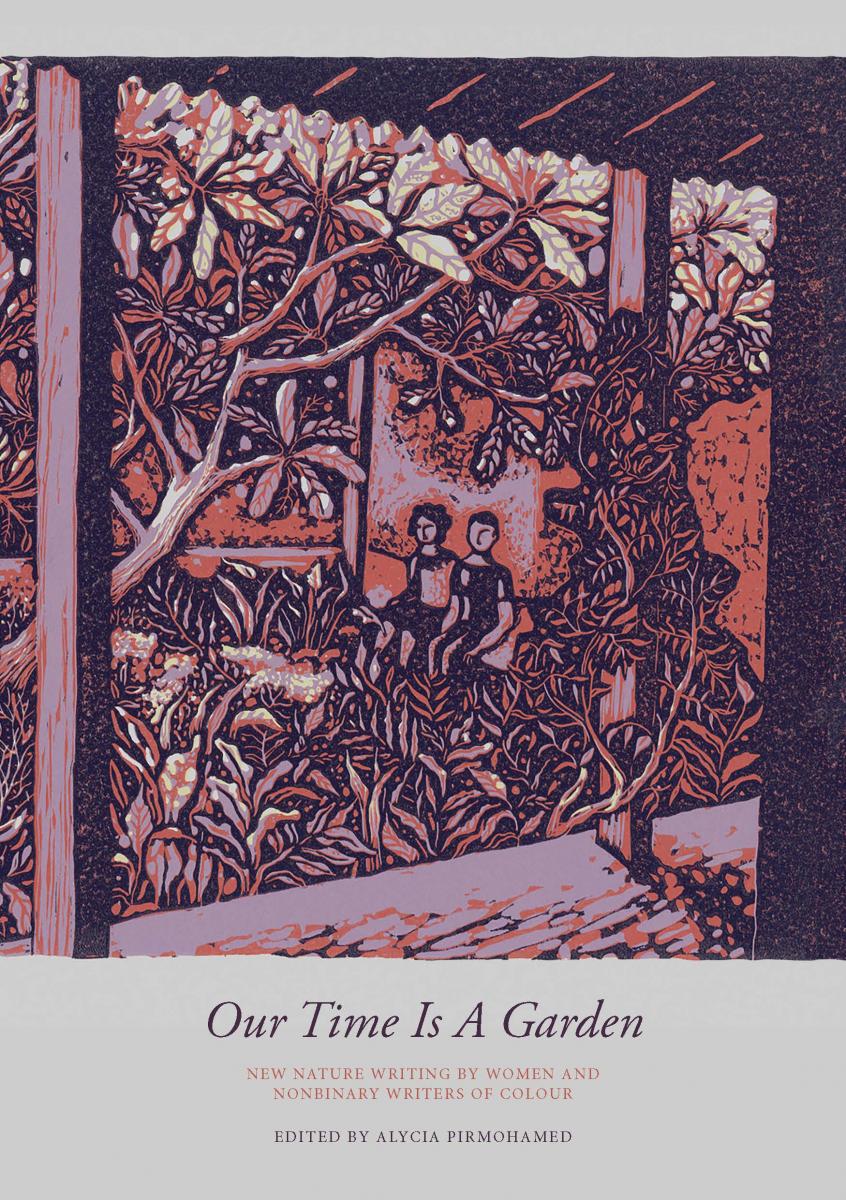
Islamophobia and Lebanon: Visibly Muslim Women and Global Coloniality by Dr Ali Kassem (I.B. Tauris – Bloomsbury Academic 2023)
Friday 10 March, 17:30–18:30 GMT followed by a drinks reception in the IASH Seminar Room, Hope Park Square: https://alikassem.eventbrite.co.uk
Thinking through anti-, post-, and decolonial theories, this book examines, analyses, and conceptualises 'visibly Muslim' Lebanese women's lived experiences of discrimination, assault, wounding, and erasure. Based on in-depth research alongside over 100 Sunni and Shia participants between 2017 and 2019, it situates these experiences at the intersection of the local and the global and argues for their conceptualisation as a form of structural and lived anti-Muslim racism. In doing this, it discusses the convergences and divergences of anti-Muslim racism in Lebanon with anti-Muslim racism in other parts of both the global north and the global south. This event is presented by IASH, the Alwaleed Centre and RACE.ED.
Dr Ali Kassem is a Lecturer in Sociology at the National University of Singapore. He was an IASH-Alwaleed Postdoctoral Fellow at the Institute for Advanced Studies in the Humanities at the University of Edinburgh in 2021-22 associated with the Institute Project on Decoloniality (IPD ’24). During 2020-21, he was postdoctoral research fellow with the Arab Council for the Social Sciences and the Carnegie Corporation of New York with an affiliation to the Beirut Urban Lab at the American University of Beirut (AUB). Ali received his PhD in 2020 from the School of Law, Politics, and Sociology at the University of Sussex and held teaching appointments at Sussex between 2018-21. He has also previously held research and/or teaching positions at the Ludwig-Maximillian University in Munich, the Ecole Des Hautes Etudes en Sciences Sociales (EHESS) in Paris, AUB, the Lebanese Centre for Policy Studies, the Lebanese American University, and others. His main interests are in Post-, anti-, and decolonial work, ethnic and racial studies, inequalities, Islam and Knowledge making on which Ali has published multiple peer-reviewed and non-academic articles and essays.
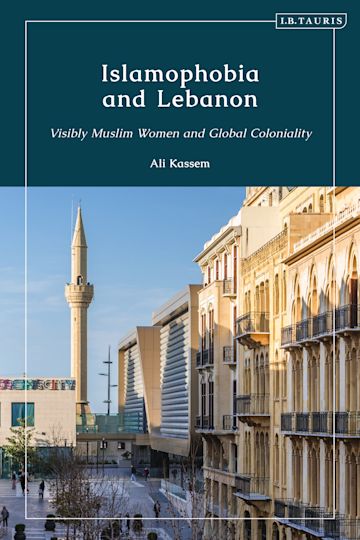
SPQR in the USSR: Elena Shvarts’s Classical Antiquity by Dr Georgina Barker (Legenda 2022)
Wednesday 29 March, 17:30–18:30 GMT followed by a drinks reception in the IASH Seminar Room, Hope Park Square: https://spqrintheussr.eventbrite.co.uk
Since her rise to notoriety among the dissident artists of the 1970s Leningrad underground, Elena Shvarts (1948-2010) has earned a place in the canon of great Russian poets for the originality, riotousness, beauty, and deceptive erudition of her poetry. Many of Shvarts’s greatest poems were inspired by classical antiquity – the literature, myth, and history of ancient Rome and Greece. Her antiquity is never static: it evolves in response to the seismic changes that Russia underwent during her lifetime. In this in-depth study, Georgina Barker follows Shvarts’ transcendental and escapist encounters with classical antiquity from wild youth to defiant old age, and discovers Shvarts shaping antiquity to fit herself. An appendix of Barker’s translations of Shvarts’ classical poems and archival transcriptions of previously unpublished poems gives anglophone and russophone readers alike unprecedented access to Elena Shvarts’ classical antiquity.
Dr Georgina Barker is Leverhulme Early-Career Fellow in the Department of Greek and Latin at University College London, with her project Classical ‘Lesbians’ in the Russian Imagination. She was a Postdoctoral Fellow at the Institute for Advanced Studies in the Humanities at the University of Edinburgh in 2018. Her research explores Russian responses to ancient Greek and Roman history, literature, and culture. She is especially interested in how classical antiquity shapes contemporary Russian society – and vice versa. At IASH she researched Elena Shvarts’ reception of Princess Dashkova, the first woman Director of the Russian Academy of Science, whom Edinburgh hosted between 1776 and 1782. Shvarts’ poem ‘Princess Dashkova’s Old Age’ gives an unconventional view of the second most prominent woman of the Russian Enlightenment; it was staged as part of the verbatim play Princess Dashkova, the Woman Who Shook the World at St Cecilia’s Hall in 2018.
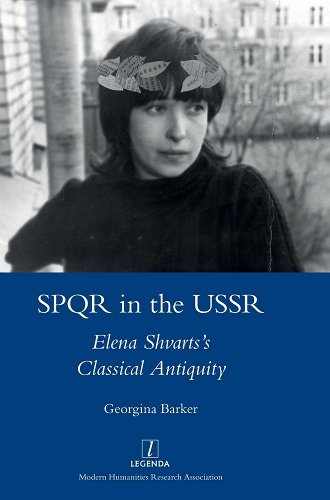
Death and the Body in the Eighteenth-Century Novel by Dr Jolene Zigarovich (University of Pennsylvania Press 2023)
Wednesday 31 May, 17:30–18:30 followed by a drinks reception in the IASH Seminar Room, Hope Park Square: https://zigarovich.eventbrite.co.uk
Death and the Body in the Eighteenth-Century Novel demonstrates that archives continually speak to the period’s rising funeral and mourning culture, as well as the increasing commodification of death and mourning typically associated with nineteenth-century practices. Drawing on a variety of historical discourses—such as wills, undertaking histories, medical treatises and textbooks, anatomical studies, philosophical treatises, and religious tracts and sermons—the book contributes to a fuller understanding of the history of death in the Enlightenment and its narrative transformation. The book was kindly supported by the National Endowment for the Humanities.
Dr Jolene Zigarovich is associate professor of English in the Department of Languages & Literatures at the University of Northern Iowa. She has also taught at Cornell University, Claremont Graduate University, and Scripps College. Jolene was a Visiting Research Fellow at the Institute for Advanced Studies in the Humanities at the University of Edinburgh in 2021. She is the author of Writing Death and Absence in the Victorian Novel: Engraved Narratives, and editor of Sex and Death in Eighteenth-Century Literature as well as TransGothic in Literature and Culture.
